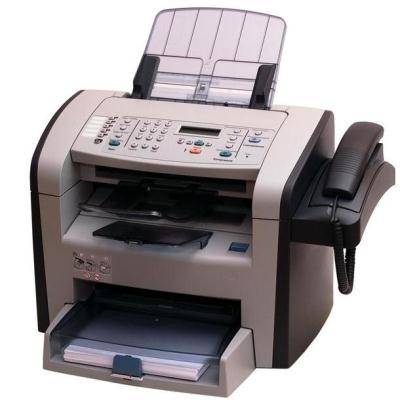It always feels a bit peculiar to come across a fax machine still being used in the modern office. With all of our digital advancements, the fax machine should have gone the way of the floppy disk. Contrary to common sense, it is estimated that there are 131 million fax machines still in operation around the world.
In fact, fax machines are doing so well that you can accurately make this bizarre statement, "Fax machines are more popular than the Nintendo Wii." Now granted, fax machines have a head start on the Wii by a couple of decades, and no sane kid has ever put a fax machine on the top of their Christmas list, but here we are in 2013 and the Nintendo Wii has just now hit the 100 million mark--an achievement fax machines unlocked long before a tossed Wii Remote cracked its first television screen.
With worldwide fax machine sales regularly hitting six million units every year, fax machines are still going strong. To put this number into perspective, Apple is expected to sell 4-6 million of its Mac computers in 2013; this includes MacBooks, iMacs, and Mac Minis. Despite achieving sales figures equal to Apple, you are likely not going to see much love given to the fax machine on your favorite technology website.
Wasn't e-mail supposed to replace the paper consuming fax machine? Even though e-mail has caught on in a big way, it has been unsuccessful in dethroning the fax machine. In fact, office paper consumption has increased 40% since e-mail was first introduced. This statistic is only bolstered by the continued use of the ever-popular fax machine.
Increasing paper consumption seems to be a problem only experienced in the business sector. Thanks to e-mail and other forms of digital communication, the rest of the world is actually decreasing its dependency on the written word. This to the chagrin of the United States Postal Service, losing massive amounts of revenue due to increased electronic communication. The USPS saw mail volumes plummet from its 2006 peak of 213 billion, to 168 billion in 2011.
Why has electronic communication caused a decrease of paper consumption in the public sector, but not in the business world? The continued use of fax machines are part of the reason, seeing as they are primarily a business tool. Many Businesses prefer faxing over e-mail because they perceive faxes to be more secure. This perception is correct in the sense that there is absolutely no way to transmit a computer virus via a paper fax.
Additionally, businesses will hang on to fax machines because it is an approved way to communicate under government laws like HIPAA. Under HIPAA, organizations can communicate via electronic communications, but strict levels of encryption and security standards must be satisfied. HIPAA gives businesses the choice to jump through several e-mail security hoops, or to simply send a fax, this is why many businesses prefer to keep on faxin'. Interestingly enough, HIPAA only applies to the US healthcare industry, but a strict e-mail communication regulation from the government in one field is enough to motive other business not to throw away their fax machines.
Communicating by fax is secure, but it is also clunky and wasteful. Faxes waste paper, ink toner is expensive, and fax machines use up considerably more electricity than computers which can be utilized for multiple tasks. On top of all of this, paper faxes have to be stored away and categorized for retrieval. Keeping track of faxes requires its own system of organization, which needs to be maintained by personnel; and unless the fax is scanned and digitized, it cannot be backed up securely as a paper document and will be susceptible to fire and flood.
A centralized fax server solution brings together the security of faxing and the convenience of e-mail. The fax server solution works by converting an incoming fax into a PDF document and sending it to your e-mail inbox. A fax as a PDF file allows you to store and retrieve your fax just like you would any other file on your network. A fax server solution will also allow you to send great looking faxes to traditional fax machines.
With your faxes digitized by a fax server solution, you will be able to back up your faxes using a backup and data recovery solution from XFER. A fax server solution translates to less paper in the file cabinet, which means less documents lost in case of a disaster. A centralized fax server can also meet HIPAA communication requirements; give XFER a call at 734-927-6666 / 800-GET-XFER for more details on how fax servers meet HIPAA regulations. In fact, if you have any questions about centralized fax servers, BDRs, or need to find solutions in regards to any of your technologies, then give XFER a call and let us help you with any of your technology needs.
![]()


Comments